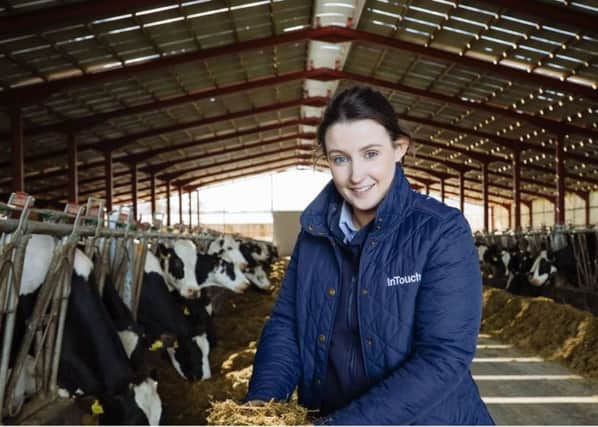Ways of getting your winter feeding programme off to the right start


With winter 2019 fast approaching, it is important to act now and prepare for winter feeding.
The saying “by failing to prepare, you are preparing to fail” resonates strongly here, and farmers need to be at the top of their game when it comes to current milk prices.
Advertisement
Advertisement
Grass silage is generally the primary winter feed for dairy cows in Northern Ireland, and as a result, will have a major influence on feeding plans over the next few weeks. The weather conditions across the country this summer have meant that silage quality and quantities vary significantly across different farms. It should be a key priority over the next few weeks to have silage analysed, to allow for an accurate feed budget. Conducting a precise forage analysis lets us know the silage characteristics and how much in concentrates we require for supplementation and the correct minerals. It also needs to be noted that if silage is of poorer quality, supplementary feeding — usually in the form of concentrates — will be required to obtain the desired performance targets.
A feed budget is essential, as it allows you to compare silage requirements with silage stocks. If additional stock is required it is better to know early in the season, as prices could potentially rise if there is a fodder shortage. Be aware that cows will eat more of the drier silages made this year, so it is important to note this in your feed budget.
InTouch has an app available to allow farmers to quickly establish forage quantities and how much forage is required to oversee the winter season. Just search InTouch Forage in the Apple or Android store.
The role of straw
Straw is often an overlooked ingredient on farms. It is commonly used for bedding but not as feed, as many farmers think it has very little feeding value. However, what it lacks in feeding value, it makes up for with effective fibre and bulk. Dry cow articles cover the nutritional benefits, but in terms of stretching silage, what we will look to use as a dry cow diet would be, on average, three kilograms per head. So, for example, a 100-cow herd at 70 days dry would need 21 tonnes of straw, plus bedding and other stock. Depending on the dry matter (DM) percentage of silage, one kilogram of straw will save four–five kilograms of silage, so 20 tonnes — or 130 4X4 bales, give or take — will save 100 tonnes of silage. With winter and spring cereals looking to be better crops this year, availability should not be an issue. If purchased early on, I would also expect a price drop on last year.
Maize silage:
Advertisement
Advertisement
A high-energy, starch-rich forage is also very palatable. It complements feedstuffs lacking in energy — like grass silage — and can also be fed as the primary forage, where it is balanced with the correct levels of protein, long fibre and minerals. Maize silage provides a high-quality, reliable and consistent forage that supports high levels of animal performance. One thing to note is that maize silage is low in protein, and it must be balanced for minerals and vitamins.
Beet:
Beet is a high-energy, low-protein and low-fibre feed. It is also highly palatable and digestible. When balanced for protein, fibre and minerals, it results in excellent animal performance. Beet should be washed and chopped before feeding. One thing to note here is that it needs to be protected from frost due to its high water content. Beet needs to be introduced into the diet slowly.
Whole crop:
Whole crop is a high-yielding forage, with high levels of energy, starch and effective fibre. It can be considered a complete feed if it is balanced for protein. Whole crop is essentially grain, straw and water in a pit. Availability and price of grain and straw should be the main factors to consider when purchasing whole crop, along with the yield of the crop.
For further help and advice on winter feeding, contact your local InTouch feeding specialist or call InTouch on 01213742969.